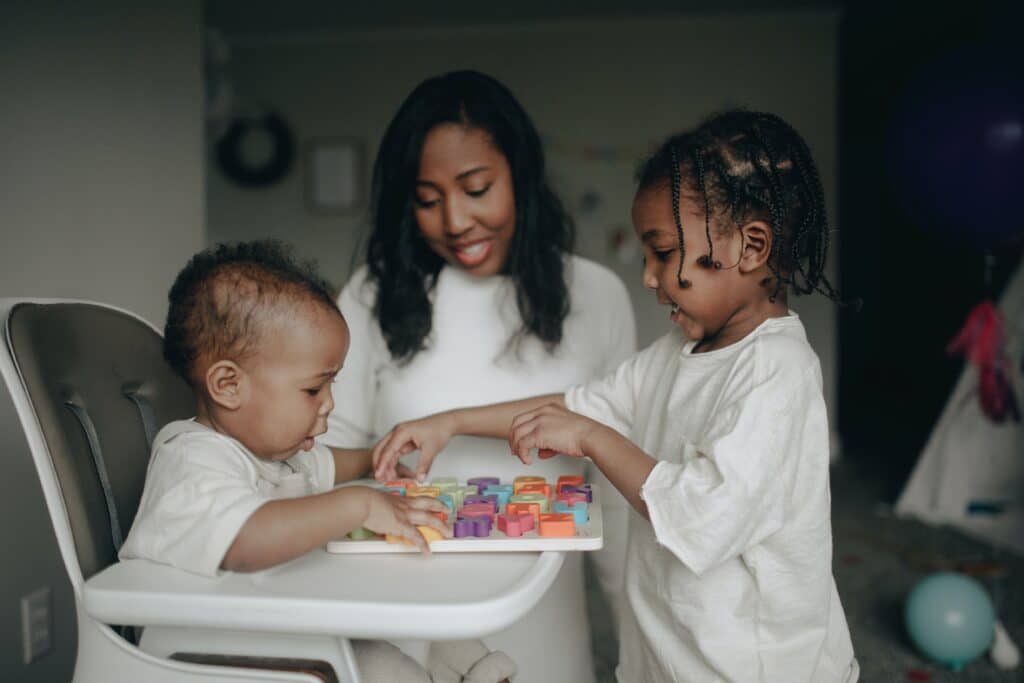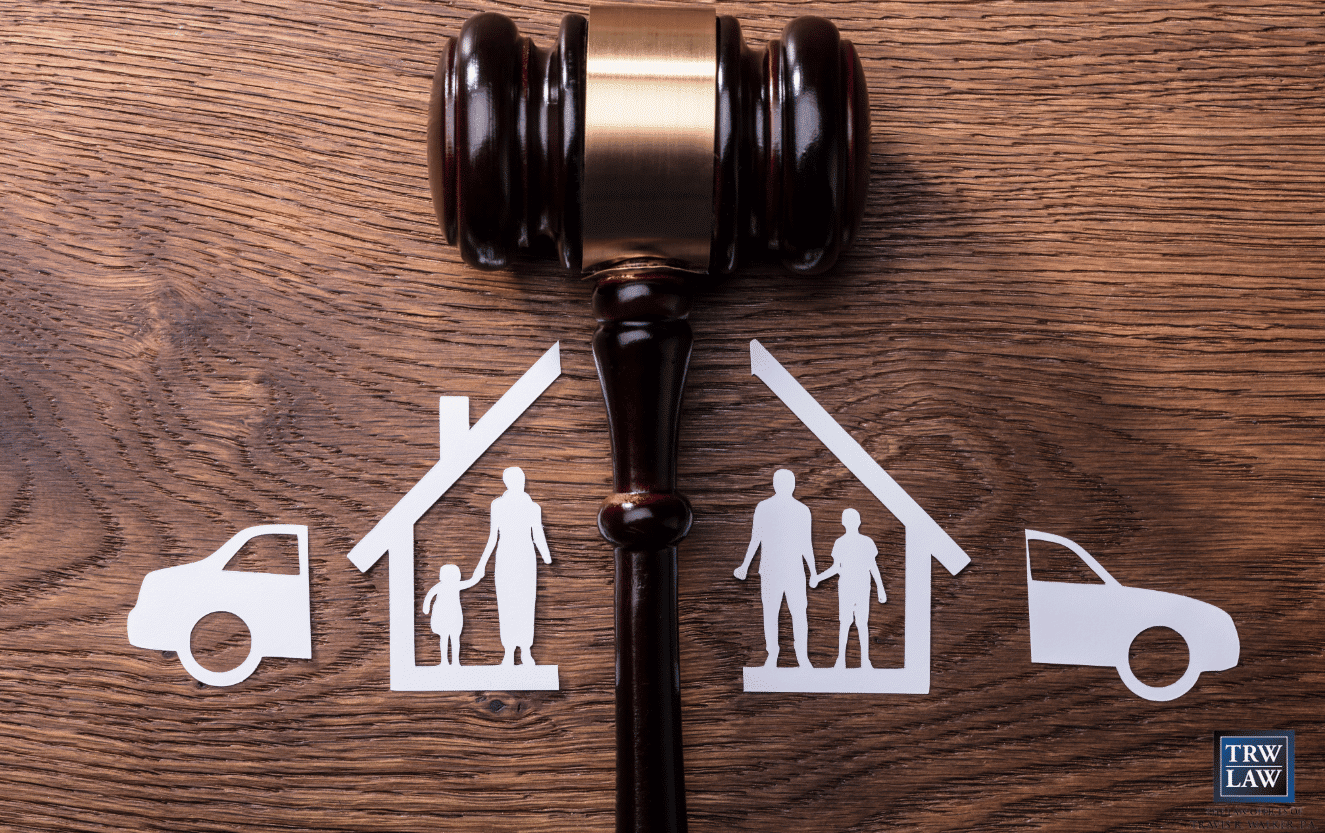Finding a child custody arrangement that suits both parents and the children can be a fine balance—especially amid the complicated emotions of divorce. Florida public policy favors joint custody so both parents can maintain regular contact with their children. Learn more about why joint custody is the most common child custody arrangement.
Divorce often involves complicated feelings and competing interests, especially when children are involved. In addition to the disappointment and heartbreak that come with the dissolution of a marriage, you also have to consider the impact on your children. Typically, both parents want to be involved in their children’s lives, even if they no longer live together as one family. So, most divorcing parents hope for amicable child custody arrangements.
The child custody arrangement you settle on will depend on your family. However, joint custody tends to be the most common child custody arrangement.
The Most Common Child Custody Arrangement
In Florida, custody involves two elements. The first is legal custody, which reflects a parent’s ability to make decisions about important aspects of their child’s life, such as health care, education, and religious upbringing. The second involves physical custody, which includes which parent a child lives with, when, and for how long.
Joint custody is an agreement in which both parents share time with the children and split parental responsibility. There are a few different ways that you can split joint custody. You can split it equally, commonly known as “50/50,” or alternate weeks with your children using a “2-2/5-5” schedule. In the latter case, children spend two days with parent A, two days with parent B, then five days with parent A, followed by five days with parent B—and the cycle continues.
A 50/50 split may work if both parents live in the same area, but if one moves out of state or otherwise far away, it can be difficult to shuffle kids back and forth weekly or biweekly. In these cases, there might be a parent with primary custody and one with secondary custody. With this arrangement, children often stay with the primary parent near their school and friends to foster a sense of normalcy, and then they may go to the secondary custody parent on the weekends or certain holidays.
In a joint custody arrangement, parents work together to make decisions about the child’s welfare, education, religion, etc. Communication and equal footing despite your relationship are key, so this custody arrangement may not work for situations in which there has been domestic abuse.
Why Is Joint Custody the Most Common Child Custody Arrangement?
Joint custody arrangements have become more common over the years. For many families, joint custody is the best possible situation after a divorce because both parents spend meaningful time with their children and remain involved in their lives. Both parents also retain legal guardianship over their children with this arrangement.
This arrangement is also so common because Florida’s custody statute expresses a preference for shared parental responsibility. Florida law presumes it is in children’s best interests to have continual contact with both parents following divorce. In addition, the law aims to ensure that both parents share the rights, responsibilities, and enjoyment of raising children.
However, the overriding concern of the courts in any custody proceeding is the children’s best interests. If a party disagrees with the presumption that joint custody serves a child’s best interests, they may provide evidence demonstrating how such an arrangement may harm the child.
Advantages and Disadvantages of Joint Custody
Advantages of Joint Custody
- Involvement from both parents. You each raised and love your children, so it’s natural that even if your relationship has ended, you both still want to be involved in their lives. Children, too, likely have attachments to their parents and want to maintain a relationship with both.
- Balanced time. Joint custody offers a balance in your custody arrangement. Many parents will settle on alternating holidays or something similar—if one parent gets the kids on Thanksgiving, the other gets them on Christmas. This way, you can each have quality time with your kids.
- Reassurance for children. Divorce can be a frightening time for children. Joint custody can help reassure them that the family is not falling apart; it is simply readjusting to suit the parents’ revised relationship.
Disadvantages of Joint Custody
- Disagreements. Not every divorce is amicable. Parents may disagree about the custody division or how to care for the children. This can lead to conflict and tension in an already tense divorce process.
- Need for communication. Joint custody requires parents to communicate with each other, and you may not want to communicate with your former spouse if your marriage ended on bad terms.
- Different schedules. Joint custody requires some flexibility when it comes to scheduling. If parents have contrasting schedules, it can be difficult to agree on which weeks one has the kids.
Factors Courts Consider When Determining Child Custody
When deciding custody matters, courts must determine what’s in the children’s best interest. They consider several factors when making this determination, including the following:
- Child’s age. When children reach a certain age, the judge will take their preference into account when it comes to determining custody. Children may prefer to live with one parent or the other.
- Parents’ ability to care for the child. If a judge finds one parent unfit to care for children, the judge will not grant them custody—or at least not primary custody.
- Child’s attachment to each parent. Are the children closer to one parent than the other? Do they seem to be afraid of or uncomfortable with one parent?
- Each parent’s living situation. Does one parent have space to house children? Do they live with roommates who might be a bad influence?
- History of abuse or neglect. The courts will prioritize the safety of the child. If one parent has a history of abuse or neglect, the judge will not likely grant them custody.
Alternative Child Custody Arrangements
If joint custody does not suit the children or the parents, there are alternative arrangements. These include:
- Legal custody. One parent is granted the right to make legal decisions on behalf of the child, regardless of whether or not they have physical custody.
- Physical custody. The children live with one parent primarily, while both share decision-making responsibilities.
- Sole custody. One parent has both legal and physical custody of the child. The other parent may have visitation rights, but the children live with the sole custody parent who is legally responsible for them.
Judges may grant physical custody to accommodate the child’s preference or their ability to stay within the same school or friend group. In most cases, judges give parents joint legal custody over their children even if one parent has physical custody. However, in some cases, if the judge finds one parent to be abusive or to misuse their legal custody, they can deny legal custody as well as physical custody.
The Role of Mediators and Lawyers in Child Custody Cases
In a child custody case, each parent will have an attorney, and there will also be a trained, impartial mediator. The mediator helps to guide you through the child custody decision-making process and facilitates compromises. If two divorcing parents struggle to see things evenly or to agree, the mediator helps them find common ground and focus on the best solution for the children. The mediator does not make any decisions but merely helps facilitate the discussions.
Your lawyer represents and advocates for you throughout the child custody proceedings. For instance, if your former spouse tries to assert you were abusive or otherwise unfit, your lawyer can build your case to dispute this. They can also help you negotiate with your former spouse for a fair child custody arrangement for both parties.
Seeking Legal Assistance
Given the stakes involved, having a family law attorney advocate for you and your child can help you get the best outcome. At The Offices of Travis R. Walker, P.A., we understand the complexities involved in child custody cases. We can provide the level-headed guidance you need to meet your child’s best interests.
Contact us today at (772) 708-0952 to schedule a consultation.












